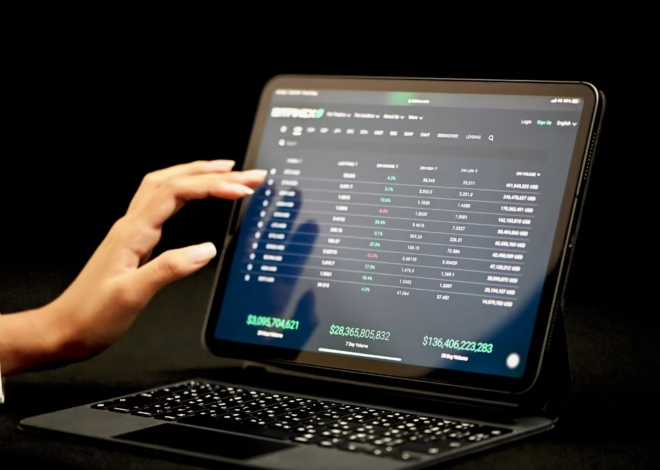
Asian Crypto Regulations and Their Impact on Forex Traders
As cryptocurrency adoption continues to rise globally, Asia stands out as a key player in shaping the regulatory landscape for digital assets. Governments across the region have taken varied approaches to regulating cryptocurrencies, ranging from strict crackdowns to more open, innovation-friendly frameworks. For forex traders operating in Asia, understanding these regulations is crucial, as they not only influence crypto markets but also have direct implications for traditional forex trading strategies.
In this blog, we’ll explore the diverse regulatory landscape across Asia and how it impacts forex traders who are integrating crypto into their trading portfolios.
The Evolving Crypto Regulatory Landscape in Asia
Asian countries have adopted a spectrum of regulatory approaches to cryptocurrencies, with some embracing the opportunities offered by blockchain and crypto, while others have taken a more cautious or even hostile stance. Here are some of the key markets and their current regulatory positions:
1. China: The Crackdown on Crypto
China was once a major hub for crypto mining and trading, but the Chinese government has taken a hard stance against cryptocurrencies in recent years. In 2021, China banned all crypto transactions and declared them illegal. The People’s Bank of China has also prohibited financial institutions from offering crypto-related services.
Impact on Forex Traders:
For forex traders in China, this has had a profound impact. Many traders who were diversifying into crypto have had to adjust their strategies, as accessing crypto markets is now heavily restricted. However, the crackdown has also led to an increased interest in trading China’s fiat currency, the yuan (CNY), which can see higher volatility due to the government’s tight control over capital flows.
Additionally, with China pushing forward its Central Bank Digital Currency (CBDC), the digital yuan, forex traders in China may need to consider how this will affect currency pair trading, particularly with the yuan becoming more digitalized and potentially influencing cross-border payment systems.
2. Japan: A Regulatory Leader in Crypto
Japan is one of the most crypto-friendly countries in the world, with a well-established regulatory framework. The Financial Services Agency (FSA) oversees the regulation of cryptocurrency exchanges, requiring them to be registered and comply with strict anti-money laundering (AML) and know-your-customer (KYC) requirements. In 2017, Japan became the first country to recognize Bitcoin as legal tender, and it continues to allow the use of cryptocurrencies for payments and trading.
Impact on Forex Traders:
For forex traders in Japan, the clear regulatory framework means they can integrate crypto into their trading strategies with greater confidence. With many forex brokers now offering crypto/fiat pairs like BTC/JPY or ETH/USD, traders can take advantage of the volatility of cryptocurrencies while trading within a secure and regulated environment. The presence of a strong regulatory regime also makes it easier for traders to move between forex and crypto markets without fear of sudden government intervention.
3. South Korea: Tight Controls, But Open to Innovation
South Korea is another major player in the crypto space, but its regulatory stance has been more cautious. The South Korean government has imposed strict regulations on cryptocurrency exchanges, including mandatory real-name accounts for crypto trading and stringent tax reporting requirements. Despite these controls, South Korea remains one of the largest crypto markets in the world, with high retail investor participation.
Impact on Forex Traders:
For forex traders in South Korea, crypto regulations have created both challenges and opportunities. The government’s tax requirements and strict controls on crypto trading have added an administrative burden, but the regulatory clarity has also provided security for traders. Forex traders who also engage in crypto trading can feel more assured about the legitimacy of exchanges, knowing they operate under tight oversight.
However, the government’s stance on taxing crypto gains can influence trading decisions, with some traders opting to stay within traditional forex markets to avoid the complexities of crypto taxation.
4. Singapore: A Hub for Crypto Innovation
Singapore is quickly becoming one of the most progressive financial hubs in Asia, embracing cryptocurrencies and blockchain technology. The Monetary Authority of Singapore (MAS) has implemented a regulatory framework that promotes innovation while ensuring investor protection. Crypto exchanges in Singapore must be licensed under the Payment Services Act, and MAS is actively engaging with the crypto industry to foster growth.
Impact on Forex Traders:
For forex traders, Singapore’s open regulatory stance presents exciting opportunities. Many forex brokers based in Singapore are expanding their offerings to include crypto/fiat pairs, enabling traders to diversify their portfolios. Singapore’s regulatory environment also supports the use of stablecoins and decentralized finance (DeFi) projects, further blurring the lines between forex and crypto markets.
As Singapore continues to position itself as a crypto-friendly jurisdiction, forex traders can expect more integration between the two markets, with faster, cheaper, and more transparent transactions becoming the norm.
5. India: A Regulatory Rollercoaster
India has had a turbulent relationship with cryptocurrencies. The Reserve Bank of India (RBI) initially banned banks from dealing with crypto transactions in 2018, a decision that was overturned by the Supreme Court in 2020. Since then, the Indian government has been in a state of flux, considering various regulatory approaches, including an outright ban on cryptocurrencies or a possible regulatory framework.
Impact on Forex Traders:
The uncertainty surrounding crypto regulations in India creates a challenging environment for forex traders looking to diversify into digital assets. While many traders have moved to offshore exchanges to access crypto markets, they face risks related to unclear legal standings and potential future crackdowns. Until India solidifies its stance on crypto, forex traders are likely to approach the market with caution, focusing more on traditional forex trading to avoid potential regulatory pitfalls.
How Crypto Regulations Influence Forex Trading in Asia
1. Currency Pair Volatility
- Cryptocurrencies are known for their volatility, and this can spill over into traditional forex markets, especially when crypto regulations change suddenly. For example, China’s crypto bans have caused significant volatility in regional currency pairs like the CNY/USD, as traders react to regulatory shifts.
2. Increased Liquidity and Diversification
- In markets like Japan and Singapore, where crypto is well-regulated, the inclusion of crypto assets by forex brokers has increased liquidity in the forex market. Traders now have more options for diversifying their portfolios by including both fiat and crypto assets in their trading strategies.
3. Cross-Border Trading Opportunities
- In countries with more progressive crypto regulations, such as Singapore, forex traders can take advantage of the seamless integration between forex and crypto markets. This opens up new opportunities for cross-border trading, particularly with the rise of stablecoins and blockchain-based payment systems.
4. Risk Management
- Forex traders who also trade crypto must consider the regulatory risks associated with different countries. A sudden regulatory crackdown, like those seen in China or India, can lead to rapid price swings in both crypto and forex markets, making risk management strategies essential.
Conclusion: Navigating the Regulatory Maze
For forex traders in Asia, the rapidly evolving crypto regulations present both challenges and opportunities. While stricter regulations can limit access to crypto markets, they also provide greater security and stability, particularly in regions like Japan and Singapore. Conversely, in countries with uncertain regulatory frameworks, forex traders must remain cautious and flexible, adapting their strategies to mitigate potential risks.
As crypto and forex markets continue to converge, traders who stay informed about regulatory changes will be better positioned to take advantage of the new opportunities that arise at the intersection of these two dynamic markets.


